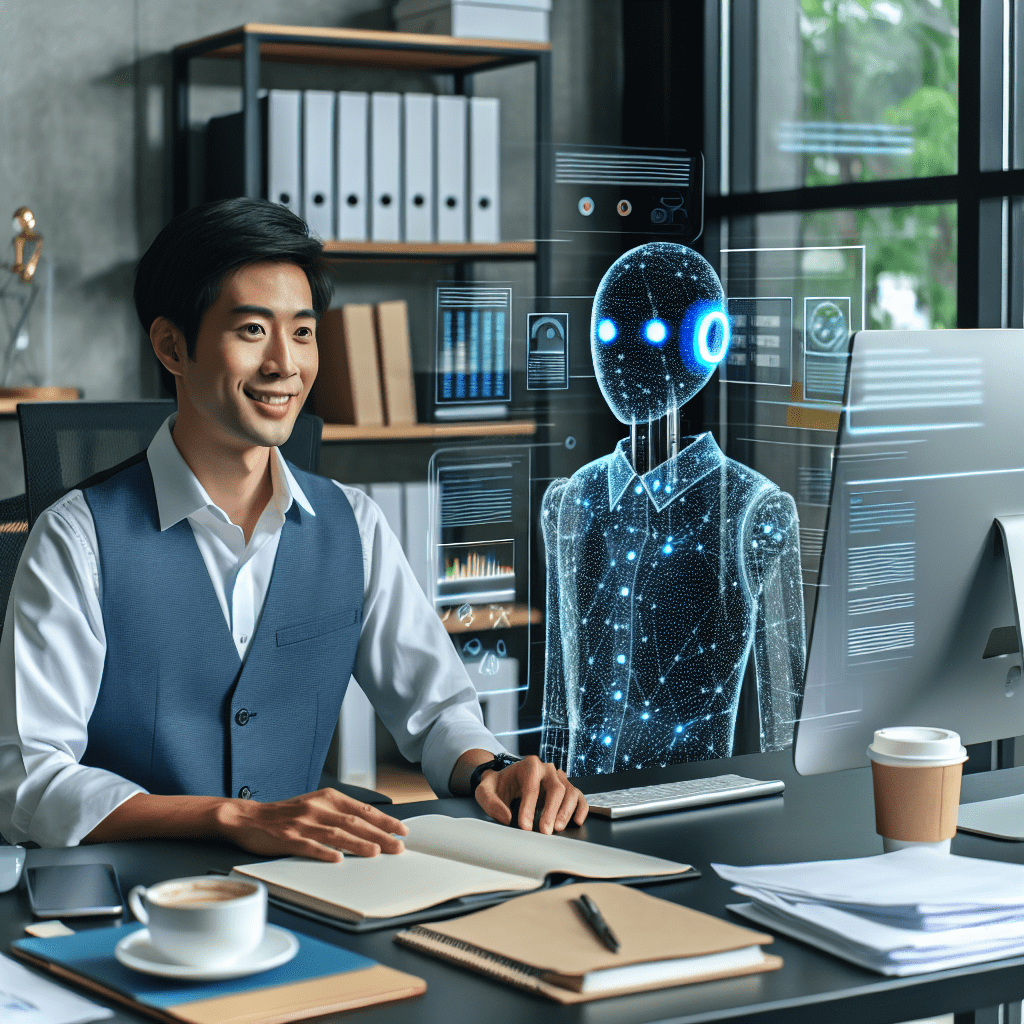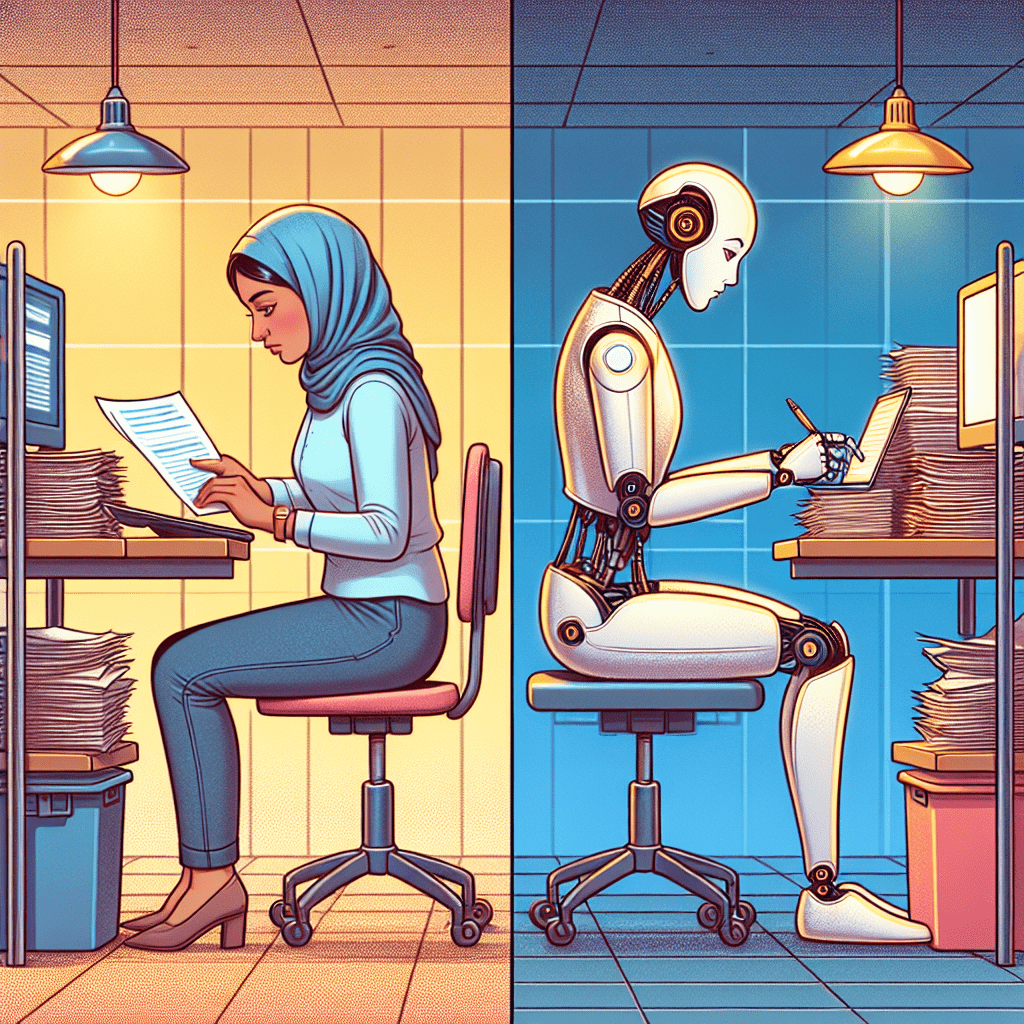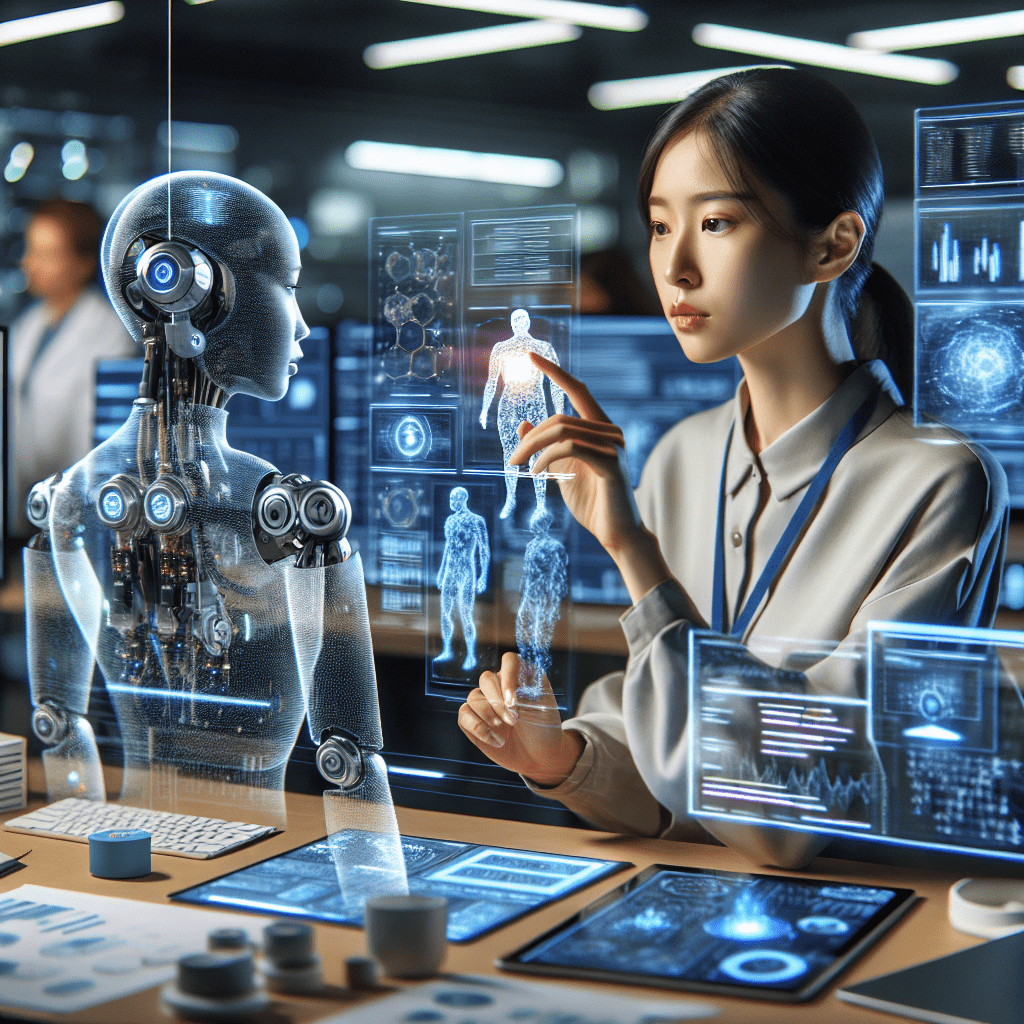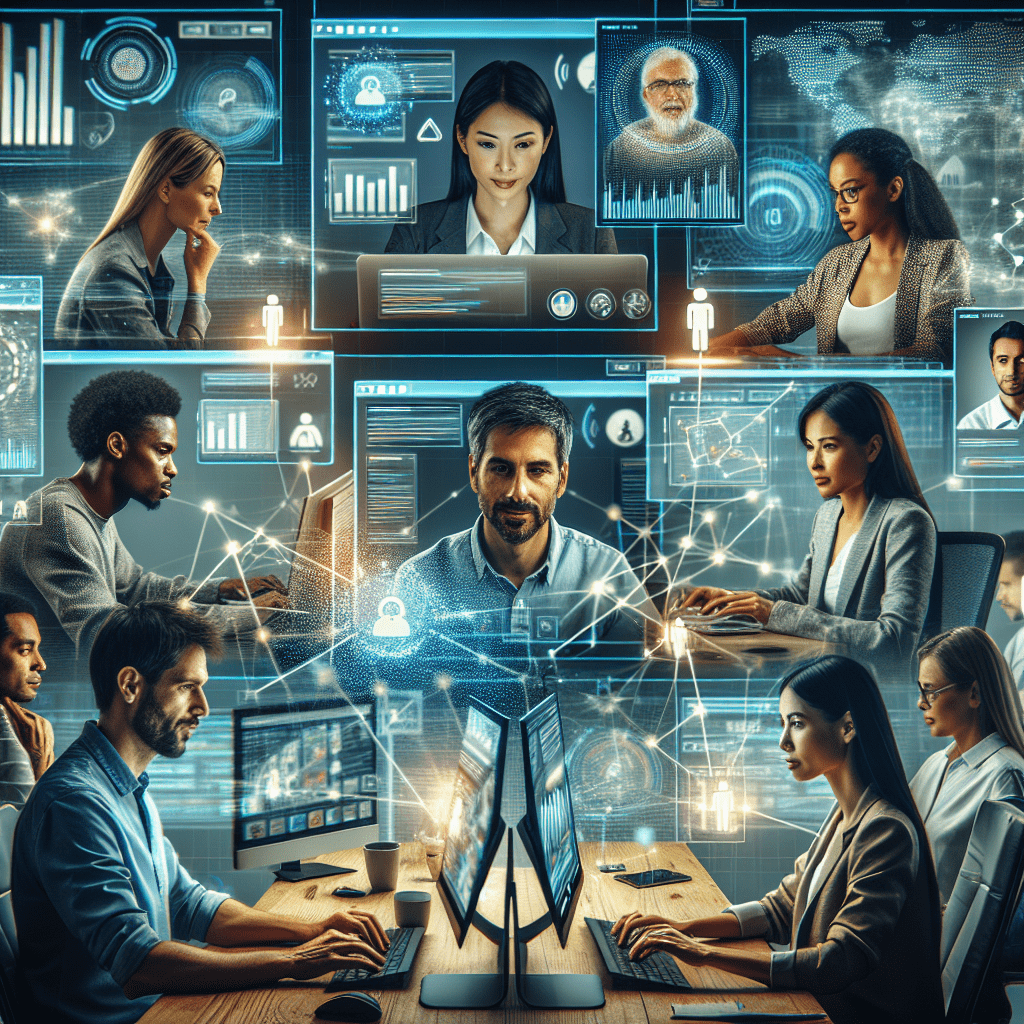Table of Contents
In today’s fast-paced, technology-driven world, businesses are constantly seeking ways to optimize their workflows and boost productivity. Artificial Intelligence (AI) has emerged as a game-changer, promising to revolutionize the way we work by automating tasks, streamlining processes, and enabling data-driven decision-making. As AI continues to advance, its impact on global workflow efficiency is becoming increasingly evident.
The Rise of AI in the Workplace
The adoption of AI in the workplace has been on a steady rise in recent years. According to a 2020 survey by McKinsey & Company, 50% of companies reported having adopted AI in at least one business function. This trend is expected to continue, with IDC predicting that worldwide spending on AI systems will reach $97.9 billion by 2023.
The driving force behind this growth is the potential for AI to significantly improve efficiency and productivity. By automating repetitive tasks, analyzing vast amounts of data, and providing intelligent recommendations, AI enables employees to focus on higher-value work that requires human creativity and critical thinking.

Automating Repetitive Tasks
One of the most significant ways AI is transforming the workday is through the automation of repetitive tasks. From data entry and scheduling to customer service and accounting, AI-powered tools can handle a wide range of routine tasks with speed and accuracy.
For example, AI-based chatbots are increasingly being used to handle customer inquiries, freeing up human agents to focus on more complex issues. These chatbots can provide instant responses to common questions, resolve simple issues, and even personalize interactions based on customer data.
Similarly, AI-powered software can automate tasks like data entry, invoice processing, and expense reporting, reducing the risk of human error and saving employees valuable time. As Satya Nadella, CEO of Microsoft, noted in a 2019 interview with The Verge, “The real opportunity for us is to empower every person and every organization to achieve more. And AI is the tool that will help us get there.”

Enhancing Decision-Making with Data Analytics
Another key area where AI is making an impact is in data analytics and decision-making. With the ability to process and analyze vast amounts of data in real-time, AI can provide businesses with valuable insights and recommendations to inform strategic decisions.
For instance, AI-powered predictive analytics tools can help companies forecast demand, optimize inventory levels, and identify potential supply chain disruptions. By leveraging machine learning algorithms, these tools can continuously learn and adapt to changing market conditions, providing increasingly accurate predictions over time.
In the realm of finance, AI is being used to detect fraudulent transactions, assess credit risk, and optimize investment portfolios. By analyzing patterns and anomalies in financial data, AI can help businesses make more informed decisions and mitigate potential risks.

Fostering Collaboration and Communication
AI is also playing a role in fostering collaboration and communication in the workplace. With the rise of remote work and distributed teams, AI-powered tools are helping to bridge the gap and ensure seamless communication across geographic boundaries.
Virtual assistants and smart meeting schedulers can help teams coordinate meetings across different time zones, while AI-powered project management tools can help track progress, assign tasks, and identify potential bottlenecks. These tools can also provide real-time updates and notifications, ensuring that everyone stays informed and aligned.
Moreover, AI-powered language translation tools are breaking down language barriers, enabling global teams to communicate and collaborate more effectively. By providing instant, accurate translations, these tools are helping businesses to expand their reach and tap into new markets.

Navigating the Challenges and Ethical Considerations
While the potential benefits of AI in the workplace are significant, there are also challenges and ethical considerations to navigate. One of the primary concerns is the potential for job displacement as AI automates certain roles and tasks.
However, many experts argue that rather than replacing human workers, AI will fundamentally change the nature of work, creating new roles and opportunities. As Ginni Rometty, former CEO of IBM, stated in a 2017 interview with Bloomberg, “Some people call this artificial intelligence, but the reality is this technology will enhance us. So instead of artificial intelligence, I think we’ll augment our intelligence.”
Another key consideration is the need for responsible and transparent AI development and deployment. As AI becomes more integrated into the workplace, it is crucial to ensure that these systems are designed and used in an ethical manner, free from bias and discrimination.
Conclusion
The impact of AI on global workflow efficiency is undeniable. From automating repetitive tasks and enhancing decision-making to fostering collaboration and communication, AI is transforming the way we work. As businesses continue to adopt and integrate AI technologies, the potential for increased productivity and innovation is vast.
However, it is important to approach the implementation of AI in the workplace with care and consideration. By focusing on responsible development, continuous learning, and human-centered design, we can harness the power of AI to augment and empower human workers, rather than replace them.
As we navigate this new era of AI-driven work, it is clear that the future of global workflow efficiency lies in the successful collaboration between human ingenuity and artificial intelligence. By embracing this partnership, we can unlock new levels of productivity, creativity, and growth, paving the way for a more efficient and innovative future of work.